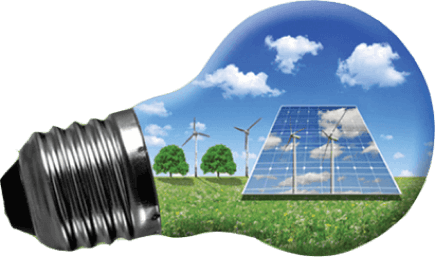Why Solar Energy Is Important
Electricity generation is one of the biggest contributors to industrial air pollution in Australia. Scientists around the world agree that climate change and global warming are real, and that human activities, especially the burning of fossil fuels, are the main causes. The effects are already being felt: changing weather patterns, threats to agriculture, risks to clean water supplies, and even the spread of tropical diseases.
Right now, most of our electricity still comes from coal and other non-renewable sources. To secure a cleaner, safer future for ourselves and the generations to come, we need to take action, starting with reducing our energy use and cutting down on greenhouse gas emissions like carbon dioxide. Every step we take today helps create a more sustainable tomorrow..
How Do Photovoltaic Work?
PV solar panels create power by converting sunlight into electricity, producing clean energy. A PV cell or solar cell is a semiconductor device that converts sunlight into electricity. These cells are combined to form panels, which, in turn, are combined to create what are called arrays, the solar generation systems that connect to the energy grid. The efficiency of each solar panel is measured by its ability to absorb light particles called photons.
The more photons that are absorbed, the more efficient the panel is at converting light into electricity. When photons strike the solar cells contained in a solar panel, they can be reflected, absorbed, or pass through the panel. When photons are absorbed, they have the energy to knock electrons loose, which flow in one direction within the panel and exit through connecting wires as solar electricity, ultimately providing power.
Prime Benefits of Solar Power System in Australia
Switching to solar power has some pretty amazing perks. For one, it’s a renewable source of energy, meaning it won’t ever run out as long as the sun’s shining, which is a huge plus compared to fossil fuels that are finite and damaging to the environment.
By installing solar panels, you can dramatically cut down your electricity bills since you’ll be generating your own power. Plus, you’re helping the planet by reducing your carbon footprint since solar energy doesn’t produce harmful emissions.
Another great thing about solar is that it’s pretty low-maintenance. Once you’ve got the system set up, there’s not much you need to do besides cleaning the panels every so often. And these solar systems last a long time, often 25 years or more, so you’re set for the long haul.
Solar also gives you more control over your energy. Instead of depending on the grid, you can produce your own electricity, which makes you less vulnerable to price hikes or power outages. Plus, as the solar industry continues to grow, it’s creating tons of new jobs, which is good for the economy.
Another bonus is that many governments offer incentives to help with the cost of installation, which can make it more affordable. Homes with solar panels tend to have higher property values too, so it can actually be a good investment in the long run.
In short, solar power is a win-win: it saves you money, reduces your environmental impact, creates jobs, and gives you more energy independence. What’s not to love?
FAQs on the Benefits of Solar Power Systems in Australia
1. Why Should I Consider Switching to Solar Power in Australia?
Australia is blessed with sufficient sunshine, making it one of the top countries in the world for solar energy. By switching to solar, you can significantly decrease your electricity bills, cut your carbon footprint, and relish cleaner, renewable power straight from the sun.
2. How Much Money Can I Save with a Solar System?
Your savings depend on your energy usage, system size, and location, but most Australian homeowners can think to cut their electricity bills by 50% or more. Over time, the savings repeatedly cover the system’s cost, making solar a clever long-term investment.
3. Does Solar Power Help the Environment?
Unquestionably! Solar energy is clean and renewable. Every kilowatt-hour of solar power you produce decreases the requirement for coal or gas-fired electricity, lowering greenhouse gas emissions and serving Australia move towards a greener future.
4. Are There Government Incentives or Rebates for Solar Systems in Australia?
Yes for sure, the Australian government offers Small-scale Technology Certificates (STCs), which decrease the upfront cost of installing a solar system. Nearly all states and territories also deliver further rebates or feed-in tariffs for surplus energy you send back to the grid.
5. Will Solar Panels Increase My Property’s Value?
Yes of course, homes with solar systems are frequently more tempting to buyers. People value lower energy costs and energy freedom, so installing solar can increase your property’s market value and entice eco-conscious buyers.
6. How Long Does a Solar System Last?
Most quality solar panels last 25 years or more, and the inverter classically lasts around 10–15 years. With appropriate maintenance, you can relish decades of consistent, low-cost energy.
7. Can Solar Power Work During Cloudy Days or at Night?
Solar panels still produce electricity on cloudy days, just at a condensed rate. At night, they don’t harvest power, but if you have a solar battery, you can store surplus energy produced during the day for use after sunset.
8. Is Solar Power Really Worth it in Australia?
Without a doubt! With rising electricity prices, plentiful sunshine, and helpful enticements, solar energy proposes long-term savings, energy safety, and ecological benefits, making it one of the cleverest investments you can make.





















